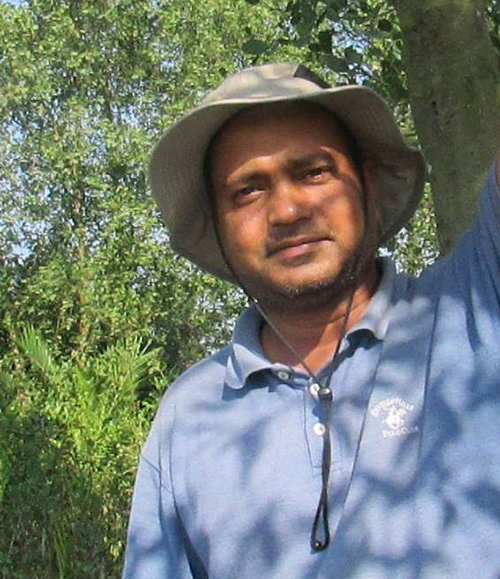Saleh Ahmed

- Assistant Professor
- Department of Sociology
- PhD, University of Arizona, 2019
- Berkey 407
- 509 E. Circle Drive
- East Lansing, MI 48823
- salahm@msu.edu
CURRICULUM VITAE
Saleh AhmedBIOGRAPHY
Dr. Saleh Ahmed is an Assistant Professor in the Department of Sociology at Michigan State University. As an interdisciplinary environmental social scientist, Dr. Ahmed’s research interest lies at the intersection of environment, development, and social justice.He received an interdisciplinary Ph.D. in Arid Lands Resource Sciences with a minor in Global Change from the University of Arizona. He also has a Graduate Certificate in Science Communication from the same institution. Dr. Ahmed’s previous degrees are on Environmental Sociology (Utah State University, UT), Regional Science (Karlsruhe Institute of Technology, Germany), Spatial Planning (KTH–The Royal Institute of Technology, Sweden) and Urban and Rural Planning (Khulna University, Bangladesh).
Previously, he worked with news media, the Government of Bangladesh, World Bank, United Nations/International Labour Organization, and most recently, prior to Michigan State, Dr. Ahmed served as an Assistant Professor in the School of Public Service at Boise State University in Boise, ID.
CURRENT RESEARCH
Dr. Ahmed’s research agenda focuses on how structural inequalities and the legacies of colonization perpetuate injustice, influence social and environmental vulnerabilities, and create obstacles in achieving inclusive adaptation, and equitable resilience. Using a rigorous systems analysis and mixed-methods approach, his current projects investigate:
- land and climate justice challenges
- power, poverty, and climate risks
- environmental decision-making and resource management
- incremental and transformational adaptation
Through his research, Dr. Ahmed seeks to bring the voices of the marginalized populations into the discussions of environment, development, and sustainability policies. Inspired by a ‘Two-Eyed Seeing’ or ‘Etuaptmumk’ (in Mikmaw), which is an approach to learning and doing science that gives value to both Indigenous and Western knowledges, he uses a decolonial framework combined with an extensive use of qualitative, quantitative, and geospatial techniques.
AFFILIATED PROGRAMS
- Environmental Science and Policy Program
- Center for Gender in Global Context (GenCen)
- Asian Studies Center
- Asia Hub
- African Studies Center
- Muslim Studies Center
RECENT PUBLICATIONS
- Aiello, P., Ahmed, S., and Meza, K. M. A. (2024). Multidimensional stressors among historically marginalized Indigenous people in highland communities: Empirical insights from the Q’ero of Peru. Journal of Environment and Development. https://doi.org/10.1177/10704965241311356
- Ahmed, S. and Eklund, E. (2024). Intersectionality shapes the access to various adaptive resources in climate-vulnerable contexts. Environmental Research: Climate 3: 045021. https://doi.org/10.1088/2752-5295/ad8d04
- Ahmed, S. (2024). Unequal Power Relations at the Center of Social Vulnerability to Climate Change: Empirical Insights from Coastal Bangladesh. PS: Political Science & Politics 57(4): 540–544. DOI: 10.1017/S1049096524000568
- Campbell, T., Ahmed, S. and Winkler, B. (2024). Analyzing the Effectiveness of the Inter-Agency Coordination on Environmental Risk Communication to the Rohingya Refugees in Bangladesh. Journal of Contingencies and Crisis Management 32(2): e12590. https://doi.org/10.1111/1468-5973.12590.
- Tayebi, S., Jabed, M. A., Ruano, A. L., Lee, G., da Silva, P. F., Ahmed, S., Aristizábal G, E. V., Dahal, R. K., Soltani, A., Imran, M., Rahman, A., Islam, A. A., & Haque, U. (2024). Stakeholder Perspectives on landslide triggers and impacts in five countries. Landslides 21: 2033–2043.
- Ahmed, S. and Eklund, E. (2024). Who owns the land? Socio-cultural, and economic drivers of unequal agrarian land ownership in climate-vulnerable coastal Bangladesh. Third World Quarterly 45(7): 1219–1237.

